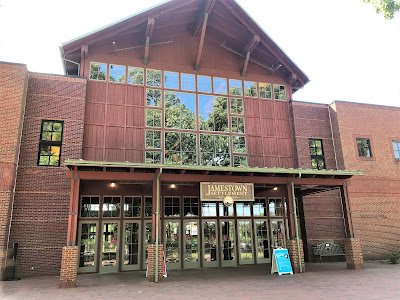We read so many articles about the best places to retire. The lists are typically based on statistics about climate, income, life expectancy, access to health care. But all these are theoreticals. I wonder what people really care about when they decide where they're going to live after they retire.
I remember my parents disagreed about where they were going to retire. My mom wanted to move to warm, sandy Florida. My dad wanted cool, blustery Cape Cod. They solved the problem by selling their suburban home and buying a place in Florida along with a summer cottage in Cape Cod. They spent eight months in Florida and four months in Cape Cod. When they got into their 80s and couldn't handle two places, they finally settled in Florida.
We had neighbors back then who didn't know where they wanted to retire. So they sold their house, rented an RV and spent a year traveling all around the country, searching for their retirement haven. They ended up in Greenville, SC. Why? I don't know. But for them it was the place to be.We have friends from New York who retired to Charleston, SC. They told us they had always expected to move to Florida, "because that's where New Yorkers go when they retire." They took several trips to Florida looking for a retirement location, but never settled on anything. On the last trip, they stopped in Charleston on the way home to see an old friend. "We fell in love with the city immediately," they told me. Two days later they agreed to buy a townhouse outside of Charleston. And now, five years later, they are happily living in the townhouse . . . and one of their children has now moved to Charleston as well.
I have two sisters. One moved to Florida in her 30s. And she's still there. The other moved all over the country and beyond. Her last job was in Phoenix, and after she retired that's where she stayed. I don't know if she really feels like Phoenix is home; but she has a grandchild there now so that's where she's gonna be.
So what's your story? Where did you move when you retired? And what led you to go there? Or, if you never moved at all, why not?
My wife and I moved from New York to Pennsylvania. We were both born and raised in the Northeast and realized we would never be comfortable living anywhere else. Florida? The Carolinas? The West Coast? Great places to visit. But not to live. At least for us.
But we wanted someplace a little less expensive than our pricey New York suburb. We considered Cape Cod. Too cold and dreary for nine months of the year. We visited Annapolis, MD. It's pretty expensive there, and seemed kind of cliquey. We looked at half a dozen places in New Jersey, including Cape May. But then we found out it's a lot less expensive if you just move across the state line into Pennsylvania.
So that's what we did. To be honest, we might have moved to be near our children. But we have four children between us, and they are spread out all over the country. So that wasn't in the cards. B does have some family in Pennsylvania and nearby New Jersey. That was a draw. And now, occasionally, my son is able to drive an hour west from Brooklyn, and I can drive an hour east from Pennsylvania, and we'll meet up in New Jersey for a round of golf.
That's our real-life retirement story. What's yours?




















